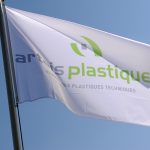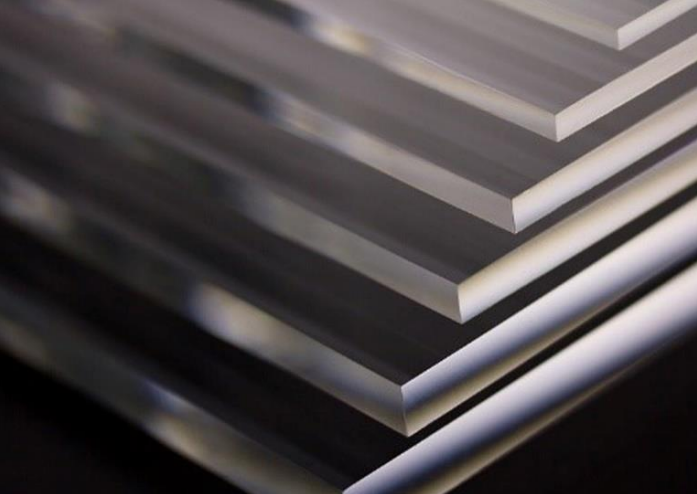
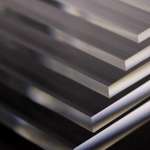
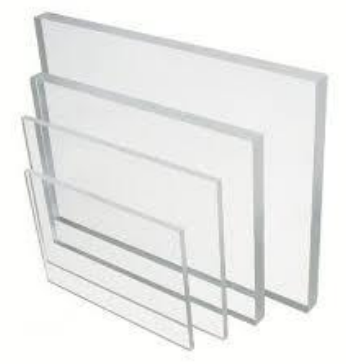
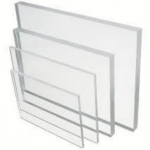
PMMA: Polymethyl methacrylate (Acrylic) or Plexiglas
Polymethyl methacrylate (PMMA), also known as acrylic or Plexiglas, is a transparent, rigid and lightweight thermoplastic material widely used for its excellent optical properties and ease of manufacture. Here is an overview of the main characteristics and applications of PMMA.
Main features
- Transparency: High optical transparency with light transmission of around 92%, similar to that of glass.
- UV and weather resistance: Excellent resistance to UV rays and weather conditions, does not yellow over time.
- Mechanical resistance: Good mechanical resistance, although less impact-resistant than polycarbonate.
- Lightweight: Approximately half the weight of the glass, making it easy to handle and install.
- Easy to make: Easy to cut, shape, drill and glue.
- Chemical resistance: Good resistance to many chemicals, but may be affected by some organic solvents.
- Thermal properties: Maximum operating temperature approx. 80°C to 90°C.
- Thermal and acoustic insulation: Good thermal and acoustic insulation.
Applications
PMMA is used in a variety of industries and applications because of its transparency, lightness and weather resistance.
- Signage and display industry: Signs, billboards and protective screens.
- Construction industry: Windows, skylights, roofs and safety glazing.
- Medical equipment: Lenses, medical devices and protective cases.
- Automotive and transport: Motorcycle windscreens, vehicle windows and lighting.
- Design and decoration: Furniture, aquariums, objets d’art and displays.
- Optics: Camera lenses, eyeglasses and optical instruments.
PMMA is valued for its unique combination of optical properties, durability and ease of manufacture, making it a versatile and reliable material for many industrial and commercial applications.
A project?
Our technicians will be happy to answer your questions.



